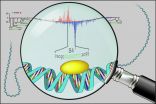(Press-News.org) More than two years after Washington legalized marijuana, parents and teens may be hazy on the specifics of the law, if the findings of a new study are any indication.
University of Washington research, published recently in Substance Use & Misuse, found that only 57 percent of Washington parents surveyed knew the legal age for recreational marijuana use and just 63 percent knew that homegrown marijuana is illegal under the law.
And while 71 percent of 10th-graders correctly identified the legal age, fewer than half (49 percent) knew how much marijuana can legally be possessed.
The findings underscore the need for better educational outreach about the law, said co-author Kevin Haggerty, professor of social work and director of the Social Development Research Group at the University of Washington's School of Social Work.
"As new states are taking on legalized marijuana, we need to have public information campaigns to make sure people have the information they need," he said.
The study surveyed 115 low-income families of teens attending Tacoma middle schools, who were part of an ongoing prevention study. Data was initially collected before Washington approved recreational marijuana, and then two years later during the summer of 2013.
The study found that while 70 percent of parents said they talked about marijuana laws with their children, those conversations were infrequent. That is troubling, Haggerty said, since 10th grade is a critical time for family discussions about drug use.
"We know that parent expectations, even as late as senior year in high school, have an impact on kids' college-age marijuana use," he said. "If kids are thinking in 10th grade that the legal age for marijuana is 18, they could potentially be more likely to use it later."
The study also found that the Washington law made little difference in the teens' attitudes about marijuana use or the likelihood of them smoking pot.
"We were most surprised to see how little parents and teens know about fundamental aspects of the new law, such as the legal age limit," said corresponding author W. Alex Mason, director of research at the Boys Town National Research Institute.
In 2012, Washington and Colorado became the first U.S. states to legalize recreational marijuana use, and Alaska, Oregon and Washington, D.C. passed marijuana legalization measures last November. The legal age for marijuana use in Washington is 21. Adults can possess up to one ounce, and homegrown pot is prohibited.
The study comes at a time when educators, parents and others are trying to determine what young people need to know about marijuana use and what messages might most effectively steer them away from it.
The Washington State Department of Health launched a $400,000 statewide campaign in June that featured ads on radio and digital media encouraging parents to talk to their kids about the risks of using marijuana. The UW's Alcohol & Drug Abuse Institute has also launched an education website which is expected to eventually be supported by marijuana tax revenues.
Washington's law mandates that a portion of revenues from marijuana sales be used for public education, drug abuse treatment and research, and stipulates that the state consult with the UW annually to decide which programs to fund. The department of health plans to launch a broader education campaign when marijuana revenues become available later this year.
"This study convincingly points out that people don't have good information about the new law," Haggerty said.
INFORMATION:
Other co-authors are Koren Hanson and Charles Fleming at the UW and Jay L. Ringle at Boys Town Research Institute. The work was funded by the National Institute on Drug Abuse.
For more information, contact Haggerty at haggerty@uw.edu or 206-543-3188.
MISSOULA - Researchers at the University of Montana, Princeton University, Stanford University and Rutgers University, among others, are collecting new measurements of tropical forests to gain a better understanding of how they respond to seasonal climate variations.
The new information helps predict how the global tropics may react to future climate change. These findings are detailed in a paper titled "Photosynthetic seasonality of global tropical forests constrained by hydroclimate," which was published in Nature Geoscience this month.
"A better understanding ...
The relationship between human disease and environmental management has been the subject of extensive research, especially given the recent outbreaks of Ebola, SARS and other zoonotic infectious diseases that transmit from animals to humans.
The fieldwork of UC Santa Barbara community ecologist Hillary Young is a good example of researchers' continuing effort to understand exactly how environmental management affects disease emergence. In East Africa, Young examines the direct impacts of human disturbance on landscape and wildlife, as well as a variety of factors affecting ...
Tropical Cyclone Haliba formed east of the island nation of Madagascar in the Southern Indian Ocean and is now affecting the La Reunion and Mauritius islands. NASA's Terra satellite passed over Haliba on March 9 and captured an image of the storm that showed the eastern quadrant was affecting the two smaller islands.
The Moderate Resolution Imaging Spectroradiometer (MODIS) instrument aboard NASA's Terra satellite captured a visible image of Tropical Cyclone Haliba on March 9 at 06:35 UTC (2:35 a.m. EDT). The image showed both La Reunion and Mauritius islands were covered ...
Although many people value receiving information about incidental findings identified from genomic sequencing, not everyone wants to know about genetic conditions regardless of potential health implications, found a study of Canadian preferences in CMAJ (Canadian Medical Association Journal).
An incidental finding refers to discovery of a genetic condition that may cause a disease, but the finding is unrelated to why genomic testing was initially ordered by the physician. For example, a test to determine if there is a genetic cause of a patient's colon cancer may find ...
In a screen of more than 100,000 potential drugs, only one, harmine, drove human insulin-producing beta cells to multiply, according to a study led by researchers at the Icahn School of Medicine at Mount Sinai, funded by JDRF and the National Institutes of Health, and published online today in Nature Medicine.
Diabetes results from too few insulin-producing "beta cells" in the pancreas secreting too little insulin, the hormone required to keep blood sugar levels in the normal range. The disease affects 380 million people worldwide, and leads to major medical complications: ...
COLLEGE PARK, Md. -- An analysis of changes to the climate that occur over several decades suggests that these changes are happening faster than historical levels and are starting to speed up. The Earth is now entering a period of changing climate that will likely be faster than what's occurred naturally over the last thousand years, according to a new paper in Nature Climate Change, committing people to live through and adapt to a warming world.
In this study, interdisciplinary scientist Steve Smith and colleagues at the Department of Energy's Pacific Northwest National ...
Activity in a brain area known as the dorsal posterior insula is directly related to the intensity of pain, a brain imaging study of 17 people has found.
Researchers at the Oxford Centre for Functional Magnetic Resonance Imaging of the Brain used a new brain imaging technique to look at people experiencing pain over many hours. Activity in only one brain area, the dorsal posterior insula, reflected the participants' ratings of how much the pain hurt.
These results, published in the journal Nature Neuroscience, could help detect pain in people with limited communication ...
Scientists have discovered another 15 genetic 'hot-spots' that can increase a woman's risk of developing breast cancer, according to research published today (Monday) in Nature Genetics.
In a study funded by Cancer Research UK*, scientists compared tiny variations in the genetic make-up of more than 120,000 women of European ancestry, with and without breast cancer, and identified 15 new variations - called single nucleotide polymorphisms (SNPs) - that are linked to a higher risk of the disease.
This new discovery means that a total of more than 90 SNPs associated with ...
Kansas City, MO. -- All the cells in an organism carry the same instruction manual, the DNA, but different cells read and express different portions of it in order fulfill specific functions in the body. For example, nerve cells express genes that help them send messages to other nerve cells, whereas immune cells express genes that help them make antibodies.
In large part, this highly regulated process of gene expression is what makes us fully functioning, complex beings, rather than a blob of like-minded cells.
Despite its importance, researchers still do not completely ...
PHILADELPHIA--Treating metastatic melanoma with a triple threat--including radiation therapy and two immunotherapies that target the CTLA4 and PD-1 pathways--could elicit an optimal response in more patients, one that will boost the immune system's attack on the disease, suggests a new study from a multidisciplinary team of researchers from Penn's Abramson Cancer Center published today in Nature.
The study, led by senior authors Andy J. Minn, MD, PhD, assistant professor of Radiation Oncology, Robert Vonderheide, MD, DPhil, the Hanna Wise Professor in Cancer Research, ...


